
Abha: The Jewel of the Asir Mountains
Nestled in the heart of the Asir Mountains, Abha is a city that offers a unique mix of natural beauty and cultural richness. Known for its cool climate and lush landscapes, Abha stands in stark contrast to the desert scenery that characterizes much of Saudi Arabia. The city is a haven for those seeking a refreshing escape with its green parks, towering mountains, and traditional architecture. One of Abha's most famous attractions is the Asir National Park, a vast area of natural beauty that is perfect for hiking and picnics. The park is home to a variety of flora and fauna, and its cool, misty peaks offer breathtaking views. Don't miss the chance to take a ride on the cable car to the top of Jebel Soodah, the highest peak in Saudi Arabia, where you can enjoy panoramic views that stretch for miles. Abha is also rich in cultural heritage. The city's traditional mud-brick houses, known as 'Asiri architecture,' are a sight to behold. Visit the Shada Palace, a restored historical building that now serves as a museum showcasing the region's history and culture. The vibrant local markets, or souks, are perfect for those looking to buy traditional crafts and souvenirs. For a more modern experience, the city offers a range of dining and shopping options. From local eateries serving delicious Saudi cuisine to contemporary malls, there is something for everyone. The Abha Dam Lake, with its serene waters and surrounding gardens, is a great spot for a relaxing evening stroll. Whether you are an adventure seeker, a history buff, or simply looking for a tranquil getaway, Abha has something to offer. Its unique blend of natural wonders and cultural treasures makes it a must-visit destination in Saudi Arabia.
Local tips in Abha
- Visit in the summer months to enjoy the cool climate and avoid the heat experienced in other parts of Saudi Arabia.
- Don't miss the traditional Tuesday Market (Souq Al-Thulatha) for unique local crafts and souvenirs.
- Plan a trip to Asir National Park early in the morning to catch the sunrise over the mountains.
- Try the local dish, Al-Mandi, a flavorful mix of rice and meat, for an authentic Saudi culinary experience.
- If you are an adventure enthusiast, consider paragliding from the peaks around Abha for a thrilling experience.
Abha: The Jewel of the Asir Mountains
Nestled in the heart of the Asir Mountains, Abha is a city that offers a unique mix of natural beauty and cultural richness. Known for its cool climate and lush landscapes, Abha stands in stark contrast to the desert scenery that characterizes much of Saudi Arabia. The city is a haven for those seeking a refreshing escape with its green parks, towering mountains, and traditional architecture. One of Abha's most famous attractions is the Asir National Park, a vast area of natural beauty that is perfect for hiking and picnics. The park is home to a variety of flora and fauna, and its cool, misty peaks offer breathtaking views. Don't miss the chance to take a ride on the cable car to the top of Jebel Soodah, the highest peak in Saudi Arabia, where you can enjoy panoramic views that stretch for miles. Abha is also rich in cultural heritage. The city's traditional mud-brick houses, known as 'Asiri architecture,' are a sight to behold. Visit the Shada Palace, a restored historical building that now serves as a museum showcasing the region's history and culture. The vibrant local markets, or souks, are perfect for those looking to buy traditional crafts and souvenirs. For a more modern experience, the city offers a range of dining and shopping options. From local eateries serving delicious Saudi cuisine to contemporary malls, there is something for everyone. The Abha Dam Lake, with its serene waters and surrounding gardens, is a great spot for a relaxing evening stroll. Whether you are an adventure seeker, a history buff, or simply looking for a tranquil getaway, Abha has something to offer. Its unique blend of natural wonders and cultural treasures makes it a must-visit destination in Saudi Arabia.
When is the best time to go to Abha?
Iconic landmarks you can’t miss
Abu Kheyal Park
Explore the beauty of Abu Kheyal Park in Abha, where nature meets tranquility in a perfect blend of lush landscapes and serene pathways.
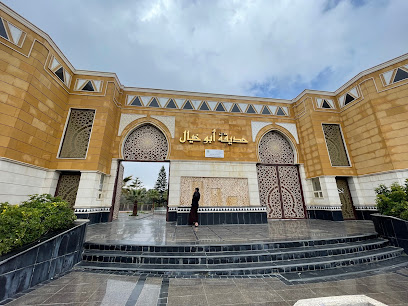
The Art Street
Explore the vibrant Art Street in Abha, where creativity meets tranquility in a stunning park filled with local art and culture.
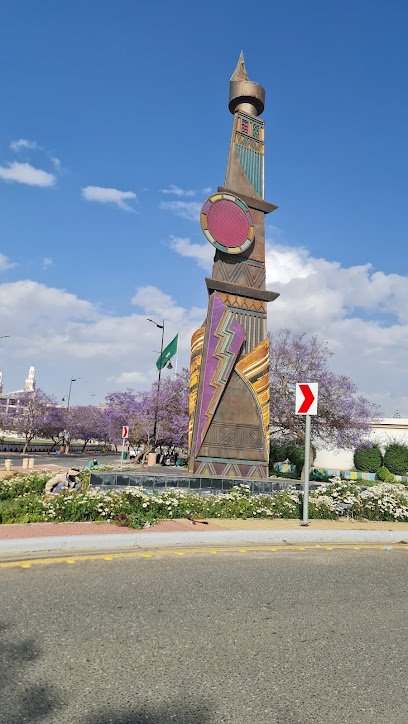
High city
Experience the breathtaking views and rich culture of High City in Abha, a top tourist attraction nestled among stunning mountains.
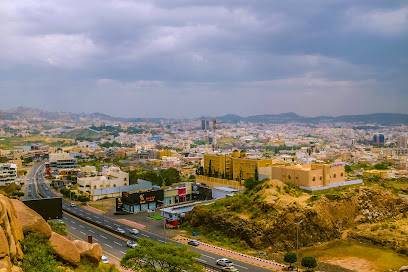
Al Sahab Park
Explore Al Sahab Park, a tranquil oasis in Al Soudah, perfect for relaxing, picnicking, and enjoying stunning views of nature's beauty.
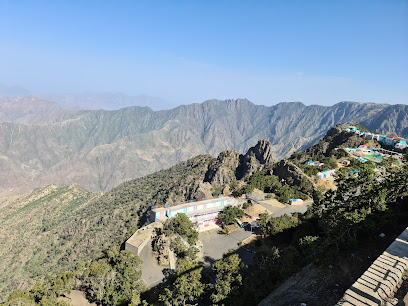
Abha Airport Park
Discover tranquility at Abha Airport Park, a hidden gem of lush gardens and stunning views, perfect for relaxation and leisure in Abha.
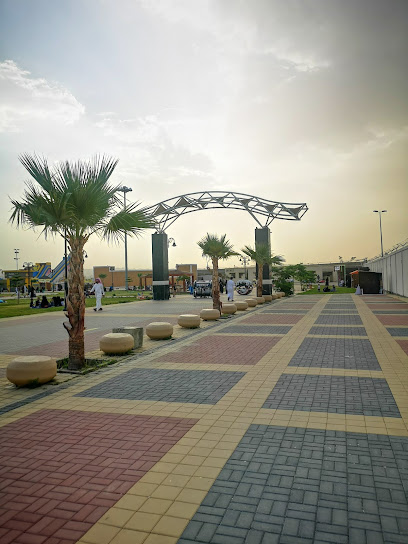
حديقة السلام
Explore the beauty of Al Salam Garden in Abha, a serene paradise filled with diverse flora and tranquil pathways, perfect for relaxation and family outings.
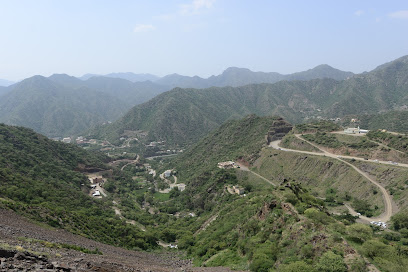
Andalus Park
Andalus Park: A tranquil urban oasis in Abha, featuring lush gardens, scenic walking paths, and a perfect spot for relaxation and family fun.
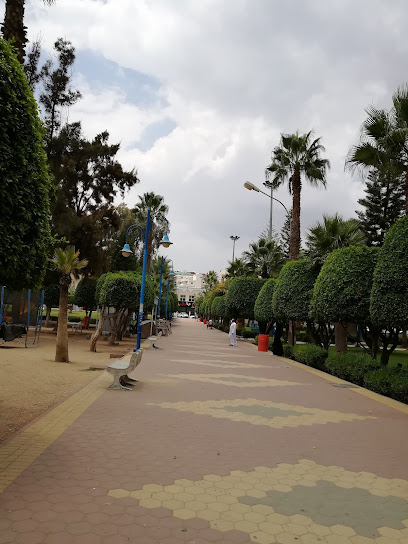
The Dabbab Walkway
Explore the Dabbab Walkway in Abha, where nature meets adventure for an unforgettable outdoor experience.
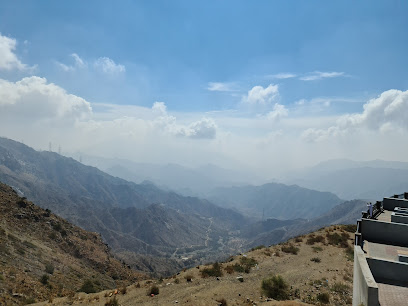
Damside Park
Discover the serene beauty of Damside Park in Abha, a lush garden oasis perfect for relaxation, family outings, and unforgettable nature experiences.
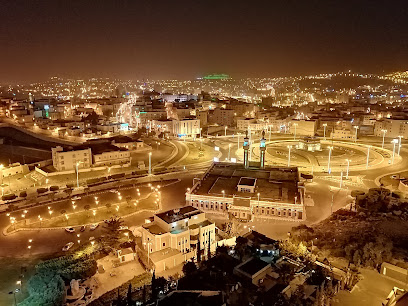
Waterfall Park
Experience the tranquil beauty of Waterfall Park in Abha, Saudi Arabia, where cascading waterfalls and lush gardens create a serene escape for every traveler.
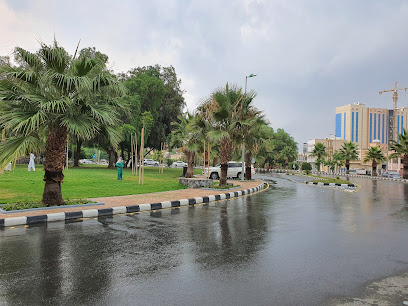
Shamsan Historical Castle
Discover the rich history and breathtaking views of Shamsan Historical Castle in Abha, a must-visit for every traveler seeking cultural immersion.
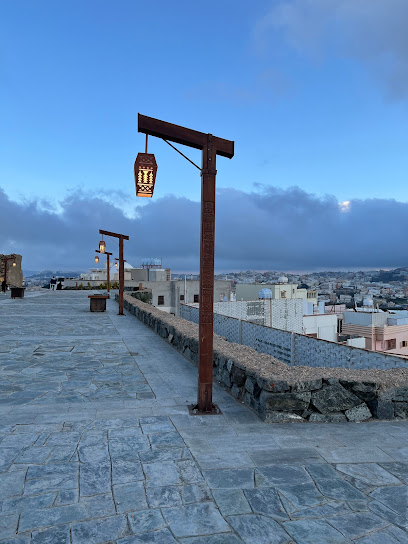
Medhal
Discover the breathtaking landscapes and rich cultural experiences at Medhal, a hidden gem in Abha, Saudi Arabia.
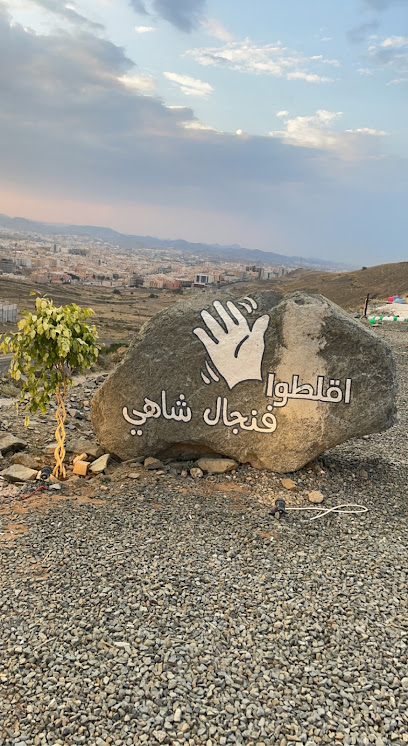
Eastern Point View
Discover the stunning scenery and serene atmosphere at Eastern Point View in Abha, a perfect destination for nature lovers and photography enthusiasts.
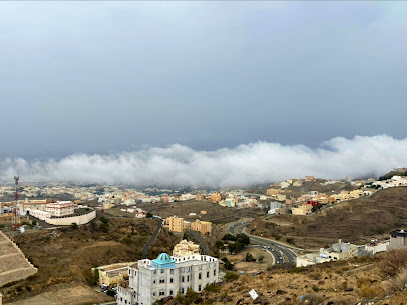
Abha Dam
Discover the tranquility of Abha Dam, a serene reservoir surrounded by stunning landscapes, perfect for nature lovers and peaceful retreats.
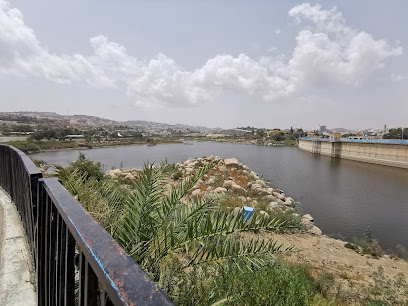
Fatima Museum of home decoration and women's clothes
Explore the Fatima Museum in Abha, a treasure trove showcasing the beauty of home decoration and women's fashion in Saudi heritage.
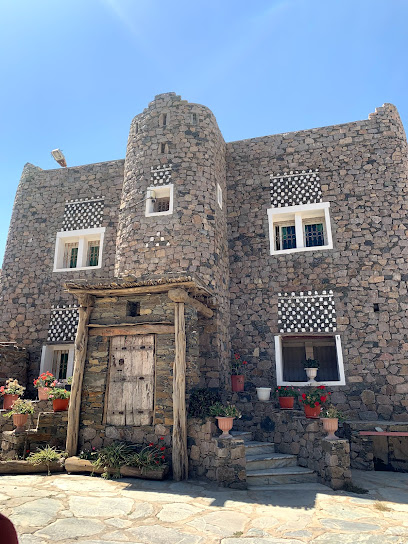
Unmissable attractions to see
Abu Kheyal Park
Experience the lush landscapes and family-friendly atmosphere at Abu Kheyal Park, a serene escape in the heart of Abha, Saudi Arabia.
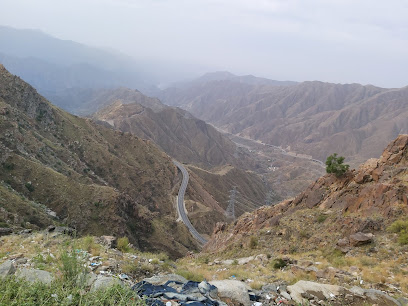
The Art Street
Discover the vibrant fusion of art and nature at The Art Street in Abha, a cultural park that inspires creativity and relaxation.
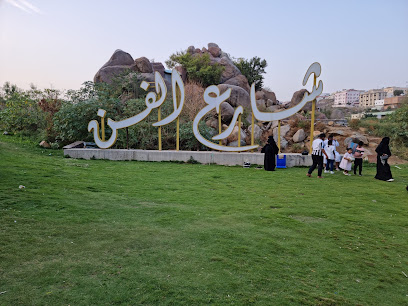
Rijal Almaa Museum
Explore the captivating Rijal Almaa Museum, where the cultural heritage of the Asir province comes alive through rich exhibits and stunning architecture.
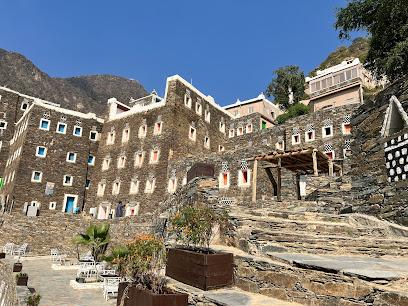
Abha Airport Park
Discover tranquility and fun at Abha Airport Park, a lush garden oasis offering breathtaking views and family-friendly activities in Abha.
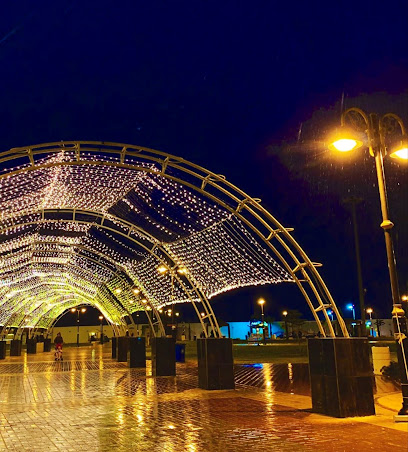
حديقة السلام
Discover the serene beauty of Hadiqat Al-Salam, a lush garden oasis in Abha, perfect for relaxation and scenic strolls amidst vibrant flora.
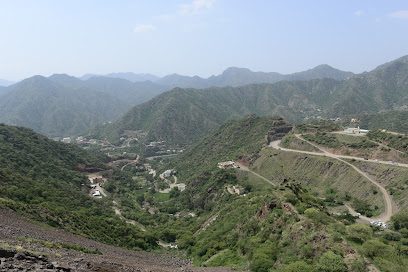
Andalus Park
Discover the beauty of Andalus Park in Abha, where lush gardens, family-friendly rides, and serene landscapes await every visitor.
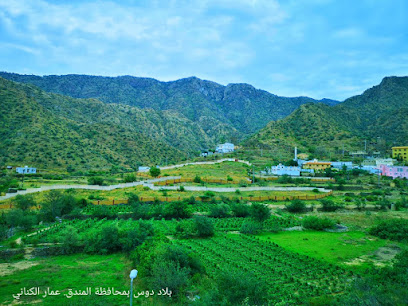
Damside Park
Discover the lush beauty of Damside Park in Abha, a serene garden oasis perfect for relaxation and outdoor activities amidst stunning landscapes.
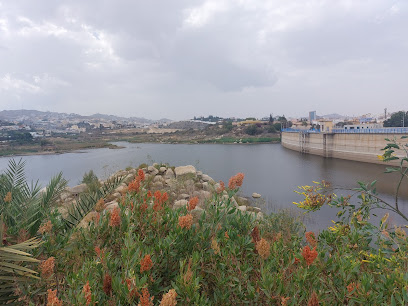
King Abdullah Park
Explore King Abdullah Park, a lush urban oasis in Al Soudah, perfect for relaxation, recreation, and enjoying nature's beauty.
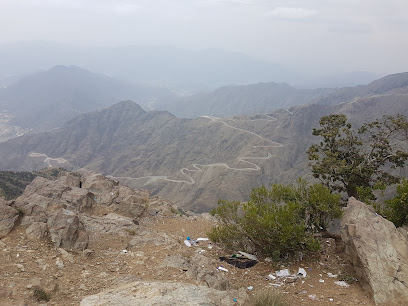
Waterfall Park
Experience the beauty of nature at Waterfall Park, a serene escape in Abha with mesmerizing waterfalls and lush gardens.
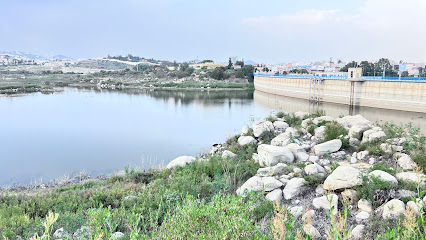
Shamsan Historical Castle
Discover the enchanting Shamsan Historical Castle in Abha, where rich history and stunning architecture meet breathtaking natural beauty.
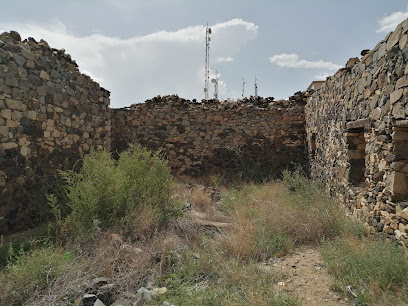
Aljhali Museum
Explore the captivating Aljhali Museum in Abha, a cultural gem showcasing Saudi Arabian history and heritage through diverse exhibits and engaging experiences.
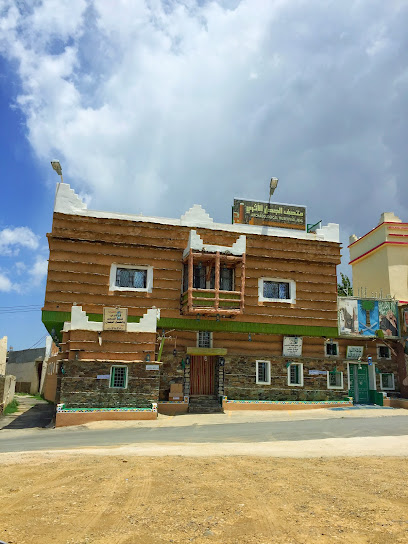
Hills Park
Experience the tranquil beauty of Hills Park in Abha, a lush oasis offering breathtaking views, walking trails, and serene spots for relaxation.

Al Dabab Park
Discover tranquility at Al Dabab Park, a lush escape in Abha, perfect for relaxation and family fun amidst nature's beauty.
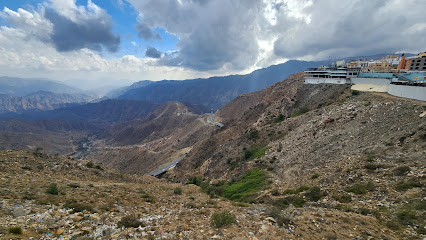
Eastern Point View
Explore the stunning vistas and serene ambiance at Eastern Point View, a top tourist attraction in Abha, Saudi Arabia, perfect for nature lovers and photographers.
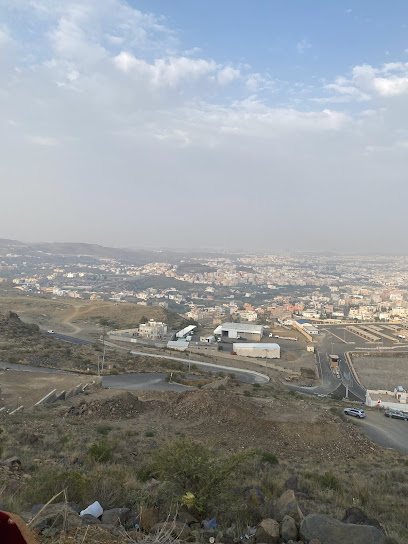
Al Raqdi Museum
Discover the rich cultural heritage of Saudi Arabia at Al Raqdi Museum in Abha, where history comes alive through captivating exhibits and artifacts.
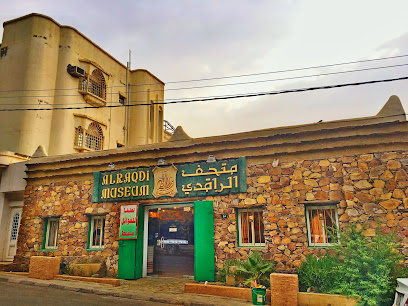
Essential places to dine
Jorry Elite (Senso, Aala Bali, La Scene) - جوري إيليت ( سينسو , على بالي , لاسين )
Discover exquisite dining experiences at Jorry Elite in Abha – where local flavors meet international cuisine.
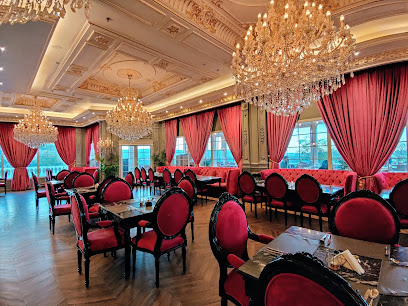
AlBaik
Discover the authentic taste of Saudi Arabia at AlBaik, where flavorful fast food meets unbeatable prices.
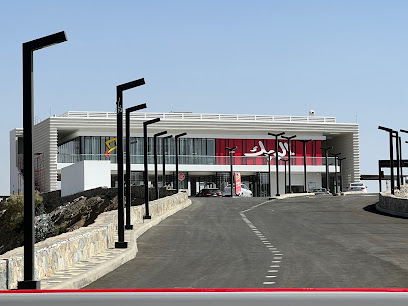
Mahrani Restaurant
Experience authentic Indian cuisine at Mahrani Restaurant in Abha – where flavors meet tradition in a vibrant atmosphere.
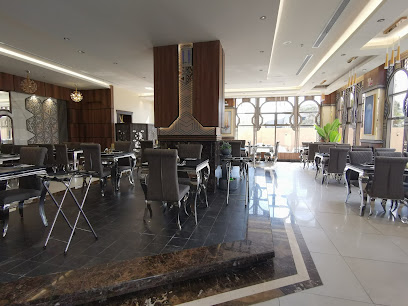
Al Bait Baitak
Experience authentic Saudi cuisine at Al Bait Baitak in Abha, where tradition meets modernity in every dish.
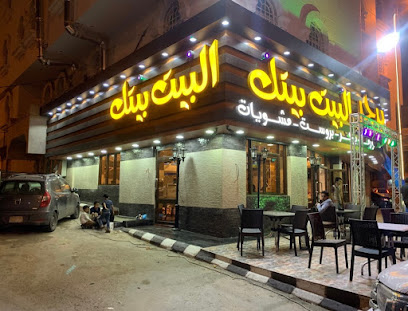
Qasr Al Mediyaf
Discover Qasr Al Mediyaf in Abha: A culinary oasis serving authentic Saudi Arabian cuisine in a warm and inviting atmosphere.
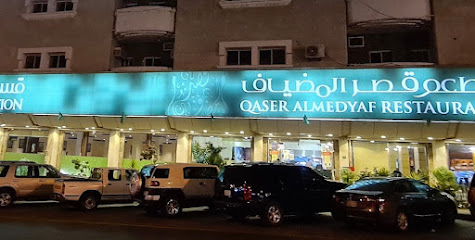
مطعم وجبة نارنج
Savor the authentic flavors of Saudi cuisine at مطعم وجبة نارنج in Abha - a delightful dining experience awaits you.
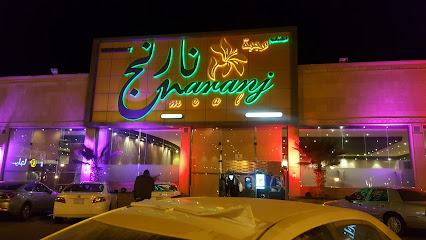
مطعم دار حراء
Experience authentic Saudi flavors at مطعم دار حراء in Abha – where tradition meets taste in every dish.
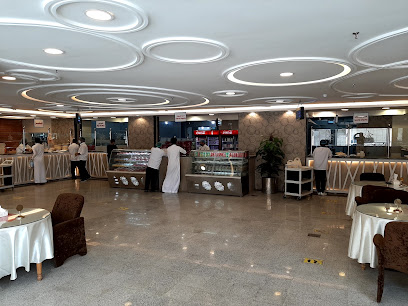
Mhanna Restaurant
Discover authentic Saudi flavors at Mhanna Restaurant in Abha – where culinary tradition meets warm hospitality.
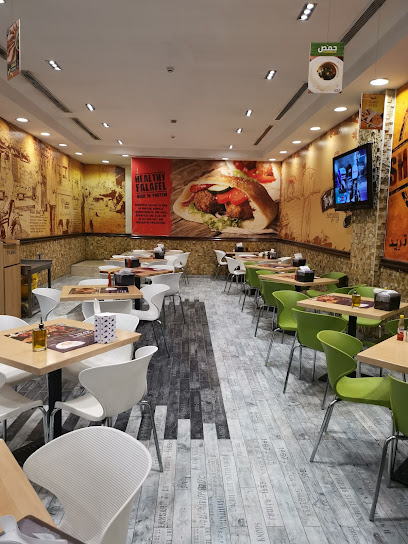
India Nights Restaurant
Experience authentic Indian cuisine at India Nights Restaurant in Abha – where rich flavors meet vibrant culture.
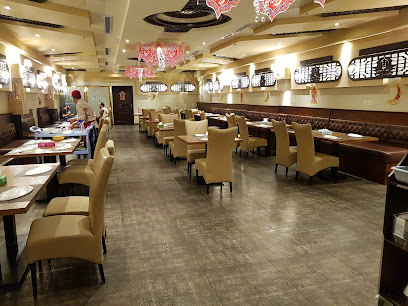
Alkarkand Fresh Seafood
Discover exquisite seafood delights at Alkarkand Fresh Seafood in Abha - where freshness meets tradition in every bite.
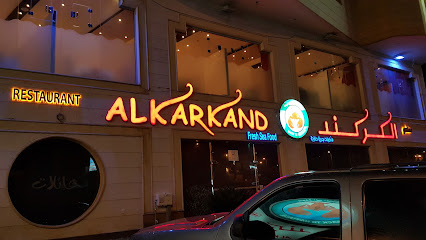
Meshraq Restaurant
Discover authentic Saudi flavors at Meshraq Restaurant in Abha – where tradition meets modern dining.
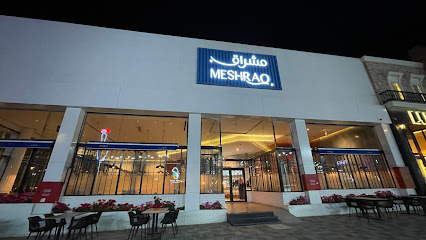
True Hashi Restaurant
Discover the authentic taste of Saudi cuisine at True Hashi Restaurant in Abha - where tradition meets flavor in every dish.
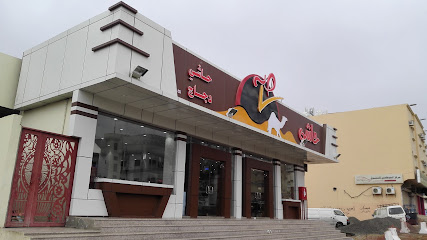
Ekleel Restaurant
Discover authentic Lebanese flavors at Ekleel Restaurant in Abha, where every dish tells a story of tradition and taste.
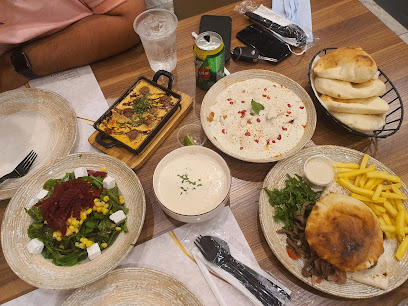
Reydah Restaurant
Experience authentic Saudi cuisine at Reydah Restaurant in Abha, where delicious flavors meet warm hospitality in an inviting setting.
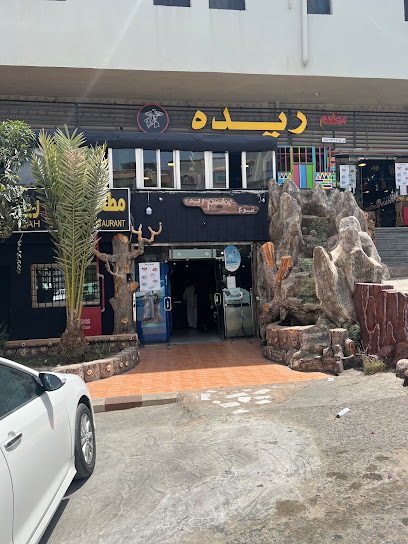
Chandni indian restaurant.
Experience authentic Indian cuisine at Chandni Indian Restaurant in Abha - where every dish tells a story of flavor and tradition.
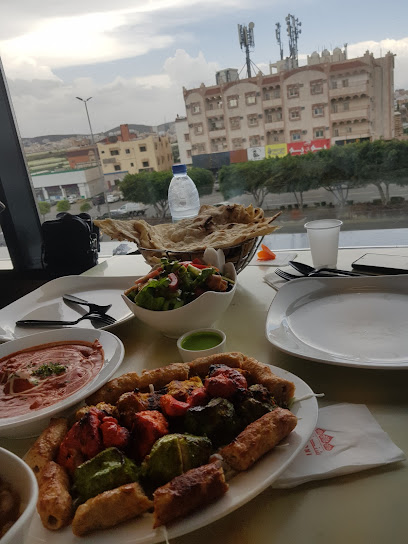
Markets, malls and hidden boutiques
Al Rashid Mall ABHA
Experience shopping like never before at Al Rashid Mall in Abha, where style meets tradition in a vibrant retail paradise.
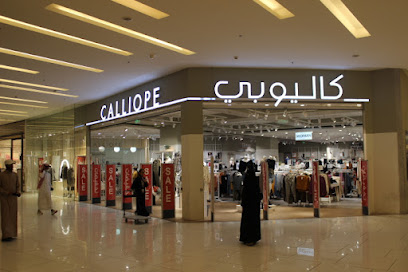
Rihana Mall
Discover the ultimate shopping and dining experience at Rihana Mall, a vibrant hub of culture and commerce in Abha, Saudi Arabia.
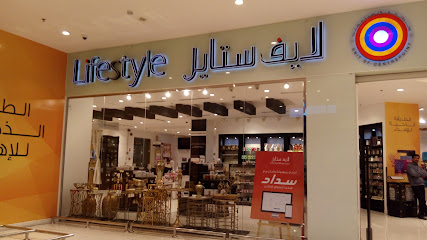
HZAAZ
Explore HZAAZ Shopping Mall, a vibrant shopping and entertainment hub in Abha, perfect for experiencing local culture and indulging in retail therapy.
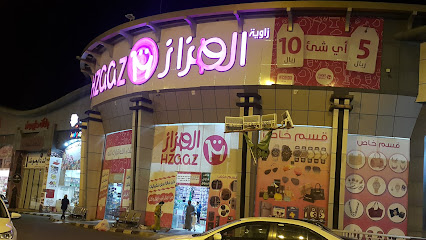
Almaha Mall
Explore Almaha Mall in Abha for a unique shopping experience blending modern retail with local culture and flavors.
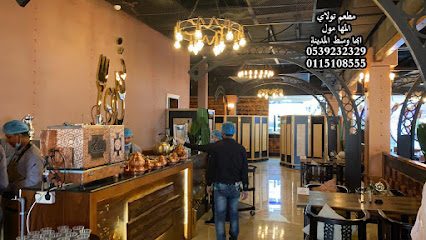
City Park
Experience the heart of Abha at City Park, a premier shopping mall with local flair, dining delights, and family-friendly entertainment.
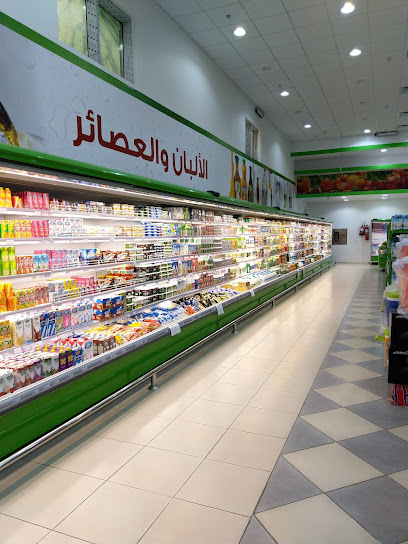
Al Hawizi Plaza
Explore Al Hawizi Plaza in Abha for an unforgettable shopping experience filled with local flavors and vibrant culture.
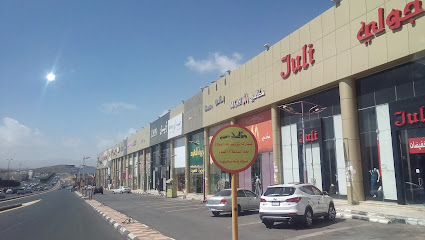
H&M
Shop the latest trends at H&M in Al Rashid Mall, Abha, where style meets affordability for the entire family.

هدايا ابها
Discover authentic Saudi collectibles and unique gifts at هدايا ابها, the premier souvenir store in Abha, offering a taste of local culture.
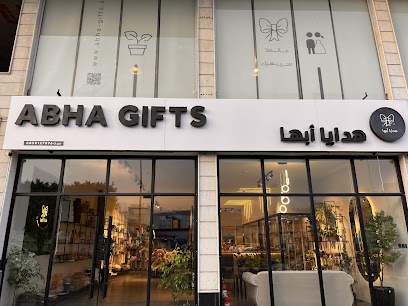
ازهار التوليب ابها
Explore the exquisite Tulip Flowers in Abha, a floral haven offering unique dried flower arrangements and thoughtful gifts for all occasions.

عسير مول
Experience the ultimate shopping adventure at عسير مول in Abha, where modern retail meets traditional Saudi hospitality.
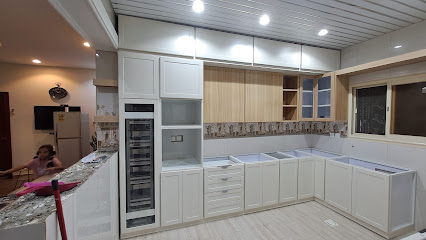
يوكا للزهور والهدايا وتجهيز الحفلات
Discover the beauty of Abha through Yucca Flowers and Gifts, a floral shop offering stunning arrangements and unique gifts that reflect local culture.
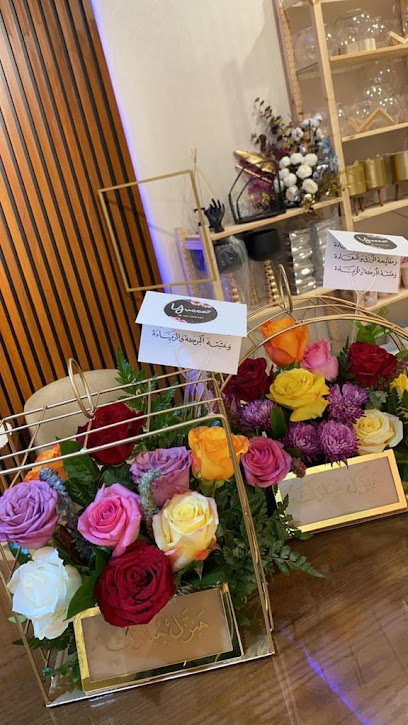
5 Riyal Shop
Experience the vibrant shopping culture of Abha at the 5 Riyal Shop – where every item is a bargain and a story awaits.
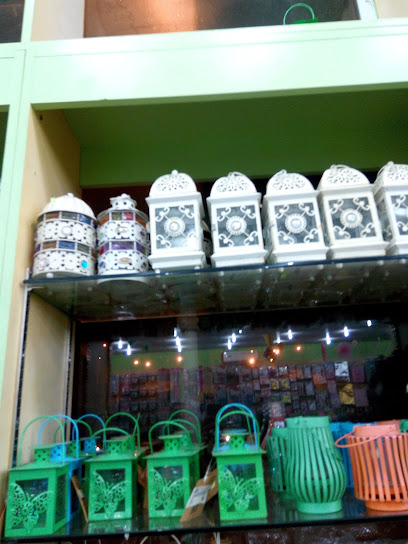
متجر الرجل Man Store
Explore the latest trends in men's fashion at Man Store in Abha, a unique clothing destination offering style, quality, and local designs.

Aseer mall
Discover the ultimate shopping experience at Aseer Mall in Abha, where modern retail meets local charm and entertainment.
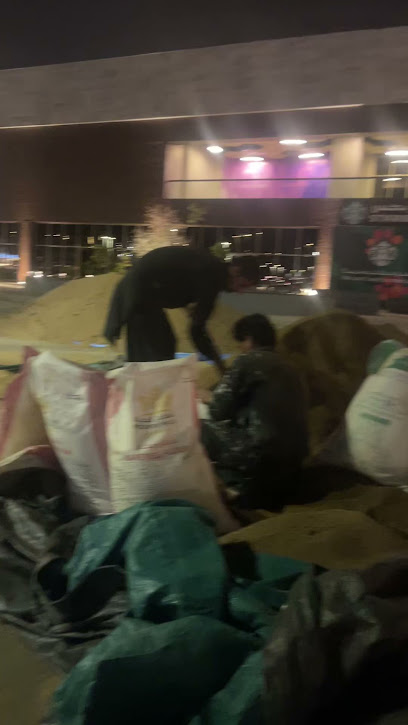
تخفيضات النور للبلاستيك والمنظفات
Explore تخفيضات النور للبلاستيك والمنظفات in Abha for affordable plastic goods and cleaning supplies, perfect for tourists and locals alike.
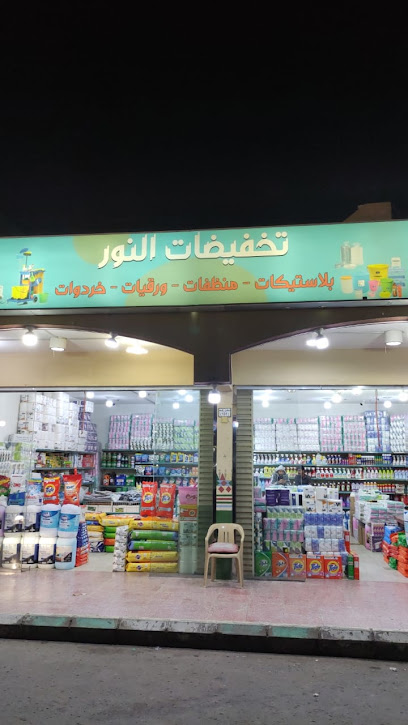
Essential bars & hidden hideouts
Jorry Elite (Senso, Aala Bali, La Scene) - جوري إيليت ( سينسو , على بالي , لاسين )
Experience the vibrant culinary scene at Jorry Elite, a must-visit restaurant and café in Abha, blending local flavors with international cuisine.
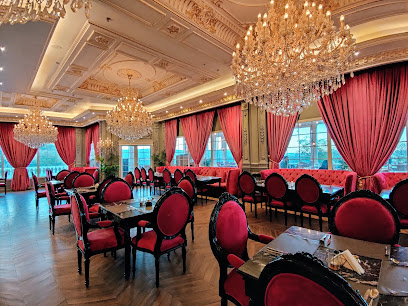
India Nights Restaurant
Savor the essence of Indian cuisine at India Nights Restaurant in Abha, where authentic flavors meet a warm atmosphere.
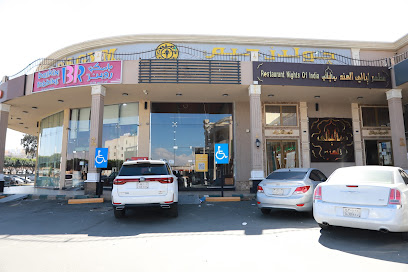
The Glass Garden Cafe
Experience luxurious dining with exquisite cuisine and stunning ambiance at The Glass Garden Cafe in Abha Al Jadidah.
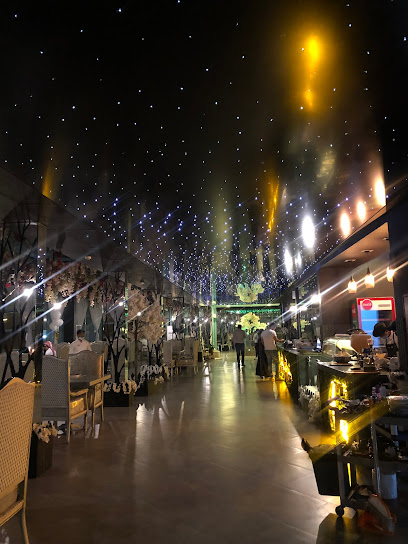
Rashfh Coffee
Discover the rich aromas and cozy ambiance at Rashfh Coffee, Abha's premier espresso bar and café destination for coffee enthusiasts.
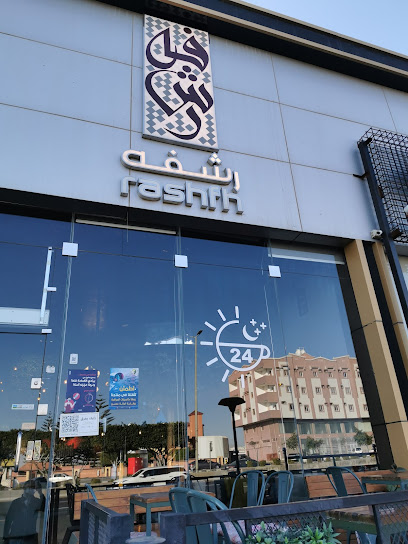
بروست ديلوكس تشكن
Discover the flavors of Abha at Broust Deluxe Chicken, a top-rated takeout restaurant serving delicious chicken and burgers in a vibrant atmosphere.
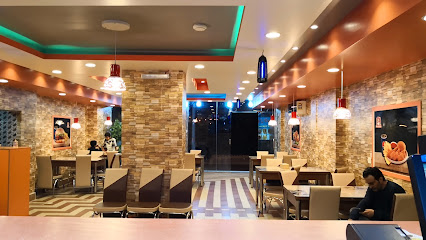
Asuka اسوكا
Experience the essence of Japanese cuisine at Asuka Sushi, a top-rated restaurant in Abha offering exquisite sushi and a welcoming atmosphere.
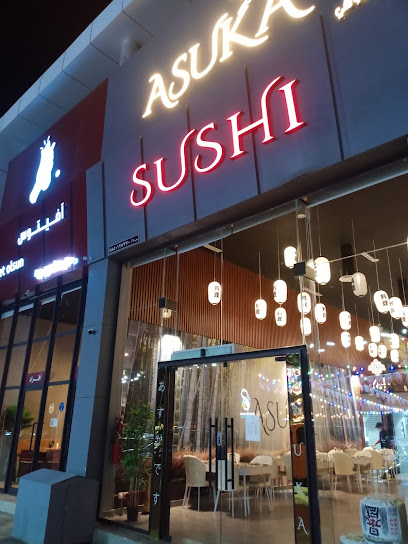
لاونج فيكشن - Fiction lounge
Discover the charm of Fiction Lounge in Abha, a premier hookah bar offering a cozy atmosphere, delicious snacks, and a vibrant social scene for all visitors.
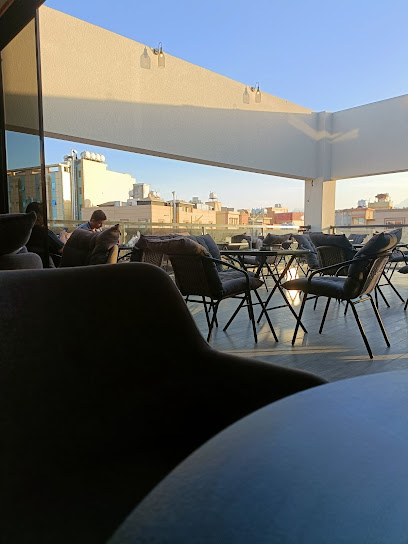
كاشونة KASHOUNA
Discover the vibrant atmosphere of كاشونة KASHOUNA, a trendy lounge in Abha that blends modern style with traditional flavors.
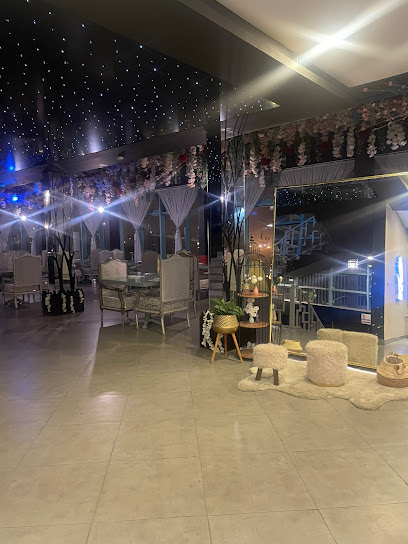
مقهى نخبة الحزام للمعسلات
Discover a cozy escape at مقهى نخبة الحزام للمعسلات, where shisha and Arabian hospitality create unforgettable moments.
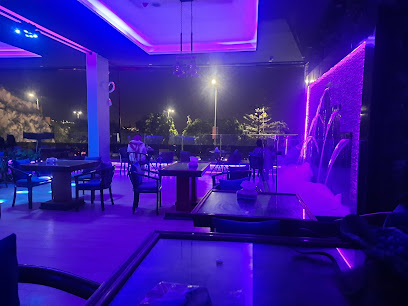
AL-WARDATHAIN FRESH FISH
Experience the vibrant flavors of Abha at Al-Wardathain Fresh Fish, where fresh seafood meets local culinary traditions in a bustling market setting.
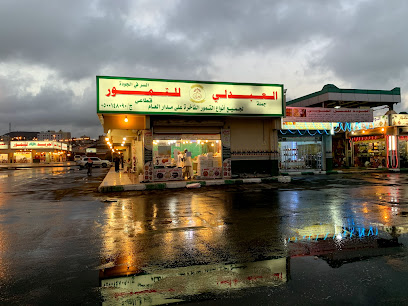
فواكه وصحة
Discover the vibrant cocktail culture at فواكه وصحة in Abha, where refreshing drinks and a lively atmosphere await.
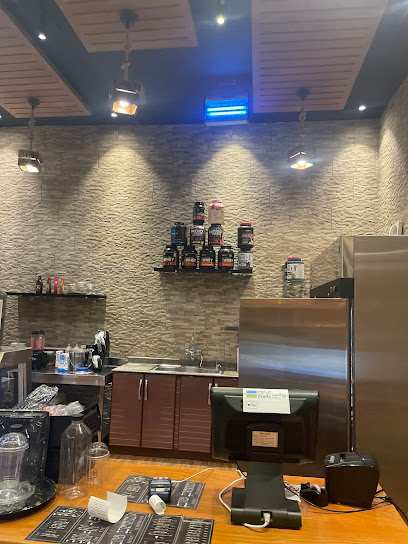
Nahran Restaurant
Discover the authentic taste of Saudi Arabia at Nahran Restaurant in Abha, where traditional flavors meet a warm and inviting atmosphere.
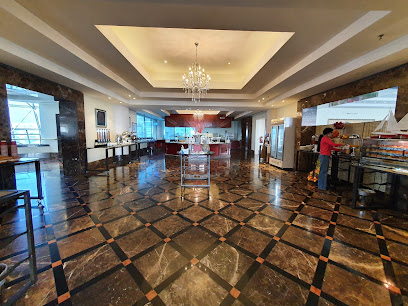
Joy Venue
Experience the exquisite flavors of barbecue at Joy Venue, a top culinary destination in Abha, perfect for food lovers seeking authentic tastes.
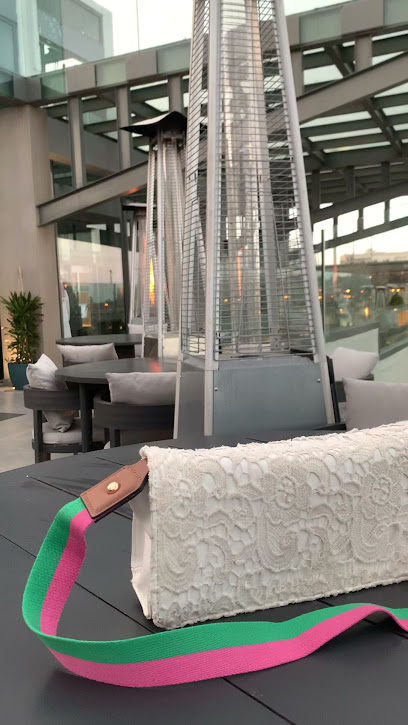
Olive Garden Abha KSA-مطعم أوليف جاردن ابها
Savor the taste of Italy at Olive Garden Abha, where family-friendly dining meets Mediterranean culinary delights.
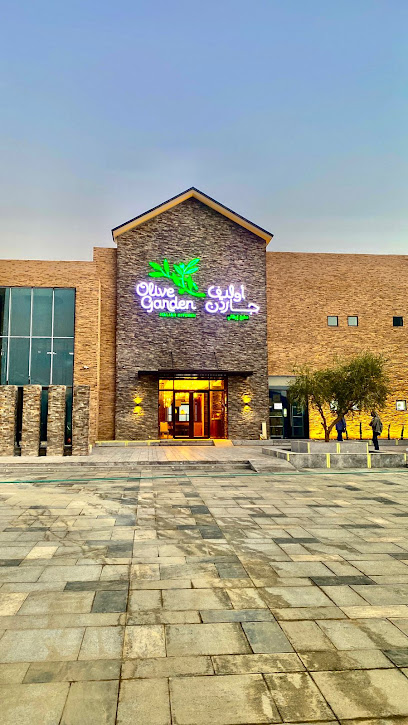
Local Phrases
-
- Helloمرحبا
[Marhaba] - Goodbyeوداعا
[Wada'an] - Yesنعم
[Na'am] - Noلا
[La] - Please/You're welcomeمن فضلك
[Min fadlik] - Thank youشكرا
[Shukran] - Excuse me/Sorryعذرا
[A'adhara] - How are you?كيف حالك؟
[Kayf halak?] - Fine. And you?بخير. وأنت؟
[Bikhayr. Wa anta?] - Do you speak English?هل تتكلم الإنجليزية؟
[Hal tatakallam al-ingliziyya?] - I don't understandلا أفهم
[La afham]
- Helloمرحبا
-
- I'd like to see the menu, pleaseأريد أن أرى القائمة، من فضلك
[Aridu an ara al-qaimah, min fadlik] - I don't eat meatأنا لا آكل اللحم
[Ana la akl al-lahm] - Cheers!في صحتك!
[Fi sahtak!] - I would like to pay, pleaseأود أن أدفع، من فضلك
[Awdu an adfa', min fadlik]
- I'd like to see the menu, pleaseأريد أن أرى القائمة، من فضلك
-
- Help!النجدة!
[Al-najdah!] - Go away!انصرف!
[Insarif!] - Call the Police!اتصل بالشرطة!
[Itsal bial-shurta!] - Call a doctor!اتصل بطبيب!
[Itsal batabib!] - I'm lostلقد ضللت الطريق
[Lakad dalalt al-tariq] - I'm illأنا مريض
[Ana mareed]
- Help!النجدة!
-
- I'd like to buy...أريد أن أشتري...
[Aridu an ashtari...] - I'm just lookingأنا فقط أتفرج
[Ana faqat atfarij] - How much is it?كم سعرها؟
[Kam siroha?] - That's too expensiveهذا غالي جدا
[Hatha ghali jiddan] - Can you lower the price?هل يمكنك خفض السعر؟
[Hal yumkinuk khafd al-siir?]
- I'd like to buy...أريد أن أشتري...
-
- What time is it?كم الساعة؟
[Kam al-sa'ah?] - It's one o'clockالساعة الواحدة
[Al-sa'ah al-wahidah] - Half past (10)النصف بعد (10)
[Al-nisf ba'd (10)] - Morningالصباح
[Al-subah] - Afternoonالظهر
[Al-dhuhr] - Eveningالمساء
[Al-masa'] - Yesterdayالبارحة
[Al-barihah] - Todayاليوم
[Al-yawm] - Tomorrowغدا
[Ghadan] - 1واحد
[Wahid] - 2اثنان
[Ithnan] - 3ثلاثة
[Thalatha] - 4أربعة
[Arba'ah] - 5خمسة
[Khamsah] - 6ستة
[Sitah] - 7سبعة
[Sab'ah] - 8ثمانية
[Thamaniah] - 9تسعة
[Tis'ah] - 10عشرة
[Asharah]
- What time is it?كم الساعة؟
-
- Where's a/the...?أين الـ...؟
[Ayna al...?] - What's the address?ما هو العنوان؟
[Ma huwa al-'unwan?] - Can you show me (on the map)?هل يمكنك أن تريني (على الخريطة)؟
[Hal yumkinuk an tureeni (ala al-kharitah)?] - When's the next (bus)?متى الحافلة القادمة؟
[Mata al-hafilah al-qadimah?] - A ticket (to ....)تذكرة (إلى ....)
[Tazkirah (ila ....)]
- Where's a/the...?أين الـ...؟
History of Abha
-
Abha, located in the Asir Province of Saudi Arabia, has a rich history that dates back thousands of years. The region was home to early tribes that thrived due to the area's fertile land and strategic location. Archaeological findings suggest that Abha was a significant settlement for ancient civilizations, with remnants of stone tools and pottery indicating a thriving community.
-
In the late 19th century, the Ottoman Empire extended its reach into the Arabian Peninsula, including Abha. The Ottomans left a lasting impact on the region, evident in the unique architectural styles that blend local and Ottoman influences. The Shada Palace, built during this period, stands as a testament to this cultural intermingling, showcasing a blend of traditional Asiri architecture with Ottoman elements.
-
The early 20th century was a tumultuous period for Abha and the Asir region. The Asir Revolt of 1919-1920 was a significant uprising against Ottoman rule, led by local tribal leaders. This revolt paved the way for the eventual unification of Saudi Arabia under King Abdulaziz Al Saud. In 1921, Abha became part of the newly formed Kingdom of Saudi Arabia, marking a new chapter in its history.
-
Abha is renowned for its vibrant cultural heritage, deeply rooted in the traditions of the Asir region. The city is famous for its intricate 'Al-Qatt Al-Asiri' art, a traditional form of wall decoration practiced by women. In 2017, UNESCO recognized Al-Qatt Al-Asiri as an Intangible Cultural Heritage of Humanity. Additionally, Abha hosts numerous festivals celebrating local music, dance, and crafts, preserving the region's rich cultural legacy.
-
In recent decades, Abha has undergone significant development, transforming into a modern city while retaining its historical charm. The establishment of the Asir National Park in 1981 marked the beginning of eco-tourism in the region, attracting visitors with its stunning landscapes and diverse flora and fauna. Abha's cool climate, lush greenery, and scenic views make it a popular destination for both domestic and international tourists.
Abha Essentials
-
Abha is well-connected by air, with Abha International Airport (AHB) serving as the main gateway. The airport is about 20 kilometers from the city center and offers domestic flights from major cities like Riyadh, Jeddah, and Dammam. International flights are also available but less frequent. Alternatively, you can reach Abha by road from nearby cities like Jeddah and Riyadh, although the journey can be long and tiring.
-
In Abha, transportation options include taxis, rental cars, and local buses. Taxis are readily available and can be hailed from the street or booked via ride-hailing apps like Uber and Careem. Rental cars are a good option if you plan to explore surrounding areas at your own pace. Local buses are less frequent but are a budget-friendly option for getting around the city.
-
The official currency in Abha is the Saudi Riyal (SAR). Credit cards are widely accepted in hotels, restaurants, and shopping centers. However, it is advisable to carry some cash for smaller establishments and local markets. ATMs are easily accessible throughout the city, and foreign exchange services are available at the airport and major banks.
-
Abha is generally a safe destination for tourists. However, it is wise to take standard precautions such as avoiding isolated areas at night and keeping an eye on your belongings in crowded places. While the city does not have high-crime areas specifically targeting tourists, it is always best to stay vigilant.
-
In case of emergency, dial 997 for medical emergencies and 999 for police assistance. Abha has well-equipped hospitals and clinics for medical emergencies. It is recommended to have travel insurance that covers medical expenses. Pharmacies are available for minor health issues, and many staff members speak English.
-
Fashion: Do dress modestly. Men should avoid shorts, and women should wear loose-fitting clothing covering their arms and legs. A headscarf is recommended for women, especially when visiting religious sites. Religion: Do respect Islamic customs and traditions. Avoid public displays of affection and refrain from eating in public during Ramadan. Public Transport: Do queue orderly while waiting for buses or taxis. Don't play loud music or talk loudly. Greetings: Do greet people with a handshake, but remember that some Muslims may prefer not to shake hands with the opposite gender. Eating & Drinking: Do try local cuisine and accept food offerings graciously. Don't drink alcohol in public, as it is strictly prohibited.
-
To experience Abha like a local, visit the Tuesday Market, where you can find traditional Asiri crafts and fresh produce. Engage with locals at coffee shops and try the traditional Saudi coffee (Gahwa) and dates. Don't miss visiting the Al-Muftaha Village, known for its cultural heritage and vibrant art scene. For breathtaking views, take a cable car ride to the top of Jebel Al-Sooda, the highest peak in Saudi Arabia.
Nearby Cities to Abha
-
Things To Do in Khamis Mushait
-
Things To Do in Jizan
-
Things To Do in Najran
-
Things To Do in Al Baha
-
Things To Do in Sana'a
-
Things To Do in Taif
-
Things To Do in Mecca
-
Things To Do in Dhamar
-
Things To Do in Asmara
-
Things To Do in Adi Keyh
-
Things To Do in Jeddah
-
Things To Do in Ibb
-
Things To Do in Dekemhare
-
Things To Do in Keren
-
Things To Do in Mendefera












